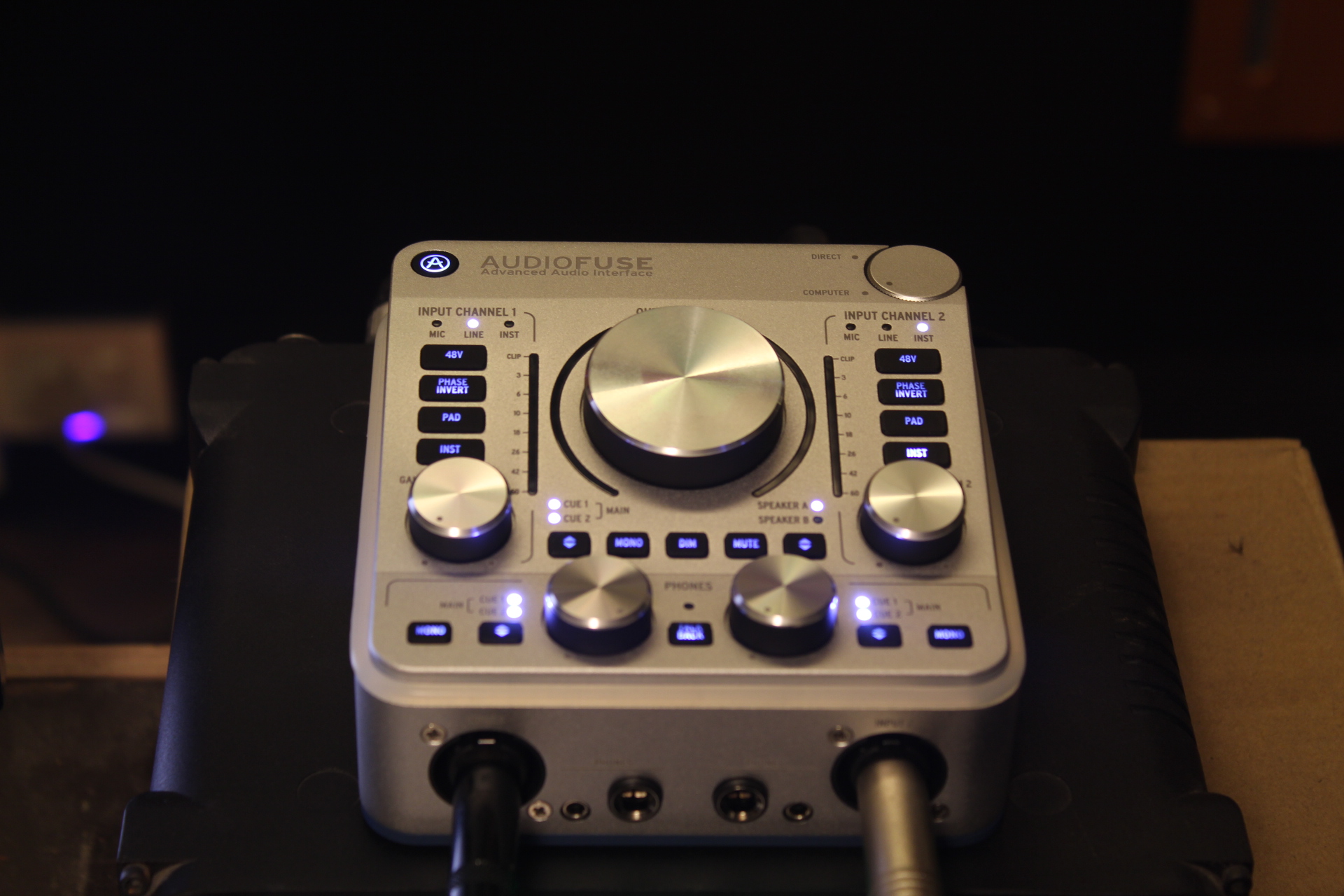After we first chanced upon this gorgeous piece of music gear at The Palm Expo 2017 in Mumbai, we have been eager to give this a patient go. We’ve had the newly released Arturia AudioFuse servicing our aural needs for the last one week at our studio, thanks to the good folks at The Inventory. We ran it through a few tasks to juice it out, record audio from hardware synths, A/B between our sound card and the AudioFuse, and we put together 13 reasons why this could replace your current audio interface.
Although this is their first foray into the audio interface domain, The French manufacturers have left no stone unturned, here is why :
1. Compact and high quality unibody aluminium build
So small you can carry it in the back pocket of your baggiest jeans. So portable you’d want to take it everywhere you go. Weighs in just shy of a kilogram at exactly 950g.
2. Three (3) Port USB Hub built-in
Never worry about forgetting that USB hub you were meant to take to that gig with this guy around. Connect your keyboard/mouse/external gear, etc. and most importantly connect your hard disks too (I personally made sure this works, provided that the power supply is connected too)
3. Can also be used as a standalone mixer
Got a bunch of friends with synths or guitars and wanna jam it out over the weekend but too lazy to connect this to a computer? Just monitor directly with a twist of a knob or use this feature in the studio or on stage to simply preview or play your hardware sounds over the mix without the need for a complicated I/O setup on your DAW. You can also blend between direct volume and computer volume.
4. Pristine 24-bit/192kHz audio quality with top-of-the-line AD/DA converters
Record audio at an impeccable industry standard quality, on-the-go or in the studio. With latencies as low as 3ms (according to Arturia)
They’ve built the pre amps on this from scratch and claim it to be on par with console grade pre amps. Check out all about DiscretePRO®
The audio output is pure bliss. Our Dynaudio LYD8 speakers, here in the studio room sounded more ‘open’ with the AudioFuse when compared to another similar audio interface.
5. King of connectivity
- 2x DiscretePRO® (Mic/Instrument/Line) mic pre w/ Analog Soft Clipping
- 2x Phono/Line Inputs
- 2x Analog Inserts
- 2x Headphone Outs
- MIDI I/O w/ supplied 3.5mm to MIDI In/Out cables
- ADAT I/O
- S/PDIF I/O
- Word Clock I/O
- A&B Speaker Outputs
- USB 2.0 w/ Micro USB port, cable with 2 USB Type-A inputs
- 3 Port USB Hub
Apart from having a giant master volume knob, that’s just right in the centre of the beautifully symmetric top layout, with exquisite I/O level meters, there’s also tons of buttons such as switching on/off 48V, Phase Invert, Phantom Power (Pad), switch between Mic/Line/Instrument (Inst)
6. PC, macOS, Linux, iOS and Android compatibility
Beware, dates multiple partners. Hook this babe up with almost anything.
7. Slick AudioFuse Control Center with button on the panel to open and close app
Great set of features as expected on the OS app, you can control all the same features plus a few more like Sample Rate, Clock Source, Pan, Mono-Stereo Link just to name a few. Pretty much everything you’d need to access frequently is right on the panel so no worries there.
8. Three amazing colours with matching hard leather-covered top covers
- Deep Black
- Space Grey
- Classic Silver
9. Talkback to communicate with your vocalist/instrumentalist in another room with built-in microphone
Imagine this. You want to tell your voice over artist to speak louder but he can’t hear you through the glass pane of the vocal booth. But would you walk over all the way into that other room just to tell him that? Hell no. Just use the Talkback button with the built-in microphone instead.
10. Mono output at the touch of a button
A much-needed physical button to switch the output to mono on-the-fly? I’ll take it. No more utilities on the master channel, just flip the switch instead.
11. Adapts to various power situations saving battery life on laptop when using on-the-go
This little beast can run most of its functions without a power adapter and can even be powered by a USB battery pack when using with a phone or tablet using the two-headed USB cable (in the box)
12. Supports both 1/4” and 1/8” headphone jacks
This is a huge plus. No more regrets about losing that often treasured 3.5mm-6.5mm jack at the gig last night.
13. Re-amping output for some extra overtones on your guitars and synth sounds
Maybe, just maybe. Try re-amping some of your favourite VST presets or your trustworthy analog synths.

I’m an Ableton Certified Trainer and the co-founder of Beatworx, one of India’s most acclaimed electronic music schools. I’ve been producing music for over a decade. My tryst with computers began in 1994, when I was three years old, and I’ve been wonder-struck by technology ever since. A high school graduate on paper, I went on to prove that formal education isn’t everything. I’m here to help guide you on the fascinating and ever-evolving journey of making music using computers and hardware.







